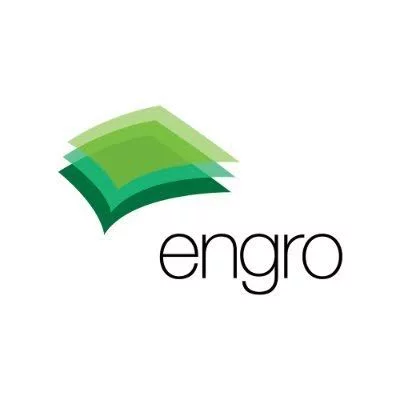
By removing discriminatory gas pricing among fertilizer manufacturers, the Government can facilitate new investments and promote efficiency to ensure sufficient urea availability for the farmers.
In a media workshop, Ali Rathore – Chief Financial Officer, Engro Fertilizers, briefed the participants about the importance of a robust indigenous fertilizer industry, its key challenges and opportunities, and recent steps taken by the Government to reform the fertilizer sector.
“The removal of subsidies for fertilizer manufacturers on SSGC and SNGPL network, which represents 60% of all fertilizer manufacturing capacity, is a step in the right direction. While gas prices for SSGC and SNGPL network have increased by around 200 percent, the manufacturers on Mari network (FFC and Fatima) are still receiving gas on the subsidized price of PKR 580/mmbtu. This discriminatory gas pricing in the industry has led to multiple prices in the market and will not help the Government achieve its fiscal objectives,” he highlighted.
The urea prices of FFBL, Engro Fertilizers and Fauji Fertilizer Company Ltd now stand at PKR 5,489 per bag, PKR 4,649 per bag and PKR 3,767 per bag, respectively. This price discrepancy has created an opportunity for the middlemen to profiteer by PKR 80 – 100 billion. A homogenous gas price will create a level-playing field for all fertilizer manufacturers in terms of input costs and help stabilize urea prices in the country.
Ali asserted that “Complete removal of subsidies and unification of gas prices for the entire industry can help the Government earn an additional PKR 80 – 100 billion, which can then be used for targeted initiatives that uplift the farmers.” He also appreciated the incoming Government’s resolve to continue reforms in the fertilizer industry and provide direct subsidies to farmers.
The briefing underscored the need to introduce long-term policies for the domestic fertilizer industry so that it may support sustained economic growth and the envisaged goals of Green Initiative Pakistan. The domestic fertilizer industry is committed to ensure abundant and affordable urea supplies, and locally produced urea is still around 30 percent cheaper than imported urea. Further, the industry recently supported the Government by uplifting around 220,000 tons of urea at imported price. It is important to note that Engro has not increased the selling price of imported urea to facilitate the Government in providing support to farmers.
Ali pointed out that even though Pakistan has the fifth highest urea consumption in the world, it is not investing in capacity growth despite a rapid surge in population. To encourage further capacity expansion by fertilizer manufacturers, there is a dire need to introduce a consistent and homogeneous policy for gas pricing for the industry.
According to him, “We must acknowledge that setting up a large scale, globally competitive fertilizer plant requires multibillion dollar investments. Removing anomalies in gas pricing will encourage manufacturers to undertake significant investments in plant modernization and expansion, while improving the efficiency to yield optimal utilization of allocated gas.”
Meanwhile, Engro Fertilizers and other major fertilizer manufacturers are investing heavily in Gas Pressure Enhancement Facilities (PEF) project to sustain domestic urea production levels and safeguard the food security of Pakistan. The expected share of Engro Fertilizers’ capital expenditure in this project is over USD 100 million.
American Kaillie Humphries Armbruster found herself at the Olympic medal stand once more for her…
In Pakistan, airstrikes targeting militants in Afghanistan have left their infrastructure decimated across various provinces.…
Punjab's anti-corruption establishment arrested a primary schoolteacher this weekend on suspicion of accepting a bribe…
In a coordinated military operation, Pakistani forces have eliminated seven "terrorist camps and hideouts belonging…
Jordan Stolz’s dream of becoming the first man in 32 years with three Olympic golds…
Iranian students at several universities began their new academic term with significant protest activities, a…
This website uses cookies.